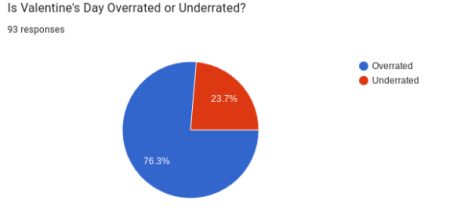Should More Active Students Receive Higher Credit for Classes?
May 13, 2016
While walking through MHS and distributing our last print issue, I was fortunate to encounter Science Department Chair Dr. David Greenwood. As he looked through the newest issue, he inquired about my contribution to The Mustang. To this, I answered with my official title and explained that I was in charge of overseeing the production of the newspaper.
“That’s a lot of work,” he said, after learning that The Mustang is published monthly and occasionally bimonthly as well as online.
Yes, it is a lot of work.
And every member of The Mustang editorial staff agrees.
“[We] spend so much effort and…energy on the newspaper, and you don’t put that kind of work into other normal core classes,” said Junior Sports Editor Melissa Burgett.
It is with this in mind that students in both newspaper and yearbook classes– specifically those with editor or leader positions– believe that it would be significantly more fair if they received a greater academic standing than those not in editor or leader positions.
Newspaper and yearbook editors seek to earn honors credit for their advanced contributions to their productions. There is, undoubtedly, much greater responsibility and workloads for editors, and therefore, there should be greater credit for those who complete each semester in such a role.
“Compared to honors classes that I’ve taken, I do a lot more work for this class than those classes, and I put in a lot of my own time,” said Production Editor Michael del Rosario, junior. “It’s a lot of extra effort and…self responsibility.”
During regular weeks when we are not designing the layout of the paper, editors, like reporters, work on tasks, such as writing articles and conducting interviews. They also are planning for the future layout week, editing a reporter’s work, answering a reporter’s question about a situation and maintaining the online site as well as the Twitter account.
In contrast, during the week of layout, we spend our class time, homerooms, and even before/after school time formatting articles and pictures into the print edition of our publication.
This is the side of newspaper that few actually see.
This Final-Exam-Week-like anxiety, which newspaper editors voluntarily subject themselves to, separates us immensely from reporters. For differences such as this, we believe it would be appropriate for us to have the opportunity to receive a higher academic reward.
However, for Principal Anthony Kroll, this is not the first time this issue has been brought forth. Many students from both academic and athletic classes (Varsity Sports P.E.) have expressed an interest in earning more credit for classes in which they feel they exceed requirements.
Kroll explained that a major factor in the debate of whether those who excel in regular classes should receive higher credits lies in the fact that there is no clear definition of what qualifies as honors-level work or participation. Without that, it is difficult to clearly state that any student has achieved it. This, of course, is decided by administrators and school board officials but has yet to be clearly defined.
In addition, Kroll said that the focus should not be on how much time one puts into a class but the quality of the work one produces in it.
Like Kroll, Director of Curriculum Stacey Gorman agreed that quality, not quantity, of a student’s work is what should be considered.
“It’s not about the amount of work that is done,” she said. “Students can do a lot of busy work that actually does not require critical thinking…but that would not be considered honors-level work.”
This isn’t to say that students shouldn’t be willing to spend more time on their work than is required but that it shouldn’t be the sole basis on which one argues that they deserve higher credit for their class.
“Honors-level work, I would argue, is…going above and beyond the regular expectations of our students…It’s the level of complexity of the work,” said Gorman.
While it is widely known that editors sacrifice much more time than their counterparts, it can also be seen that they are required to complete more complex tasks as well.
As mentioned above, editors are required to learn how to operate programs, such as Adobe Photoshop and Adobe InDesign, in order to create the print newspaper. They also have to learn how to operate the online site in order to maintain its existence.
But until administrators discuss and finalize a solution about this ongoing debate, for those seeking to earn honors credit in non-honors classes, little can be done except to advocate for such changes, as this article is attempting to do.
In the meantime, it is best to continue working hard and remaining informed on any scheduled– or proposed–academic changes which might open the door for an honors-credit opportunity.
